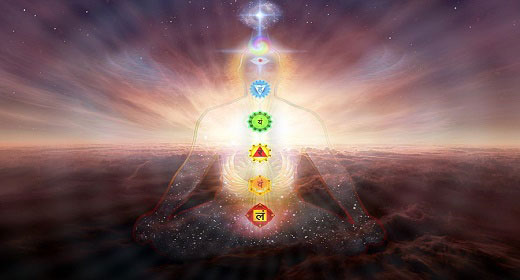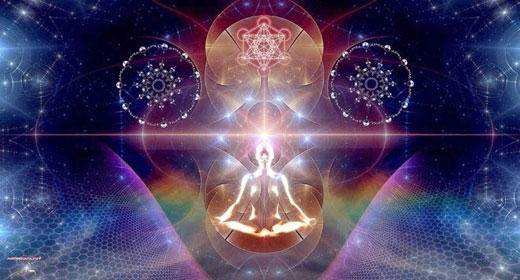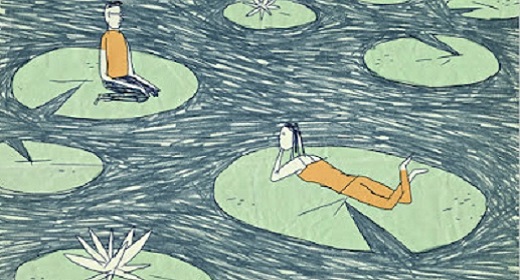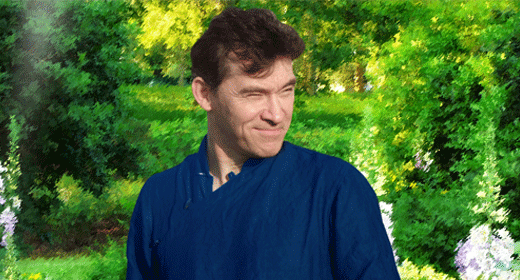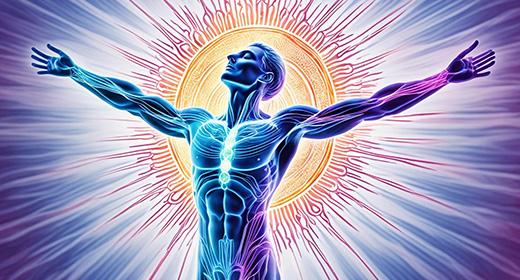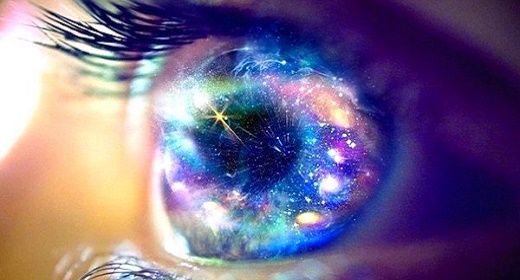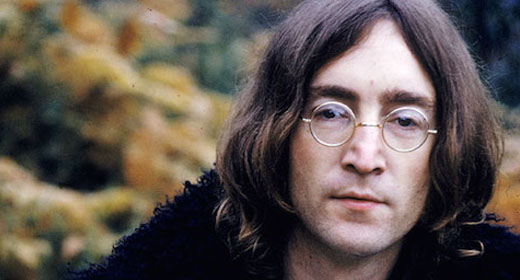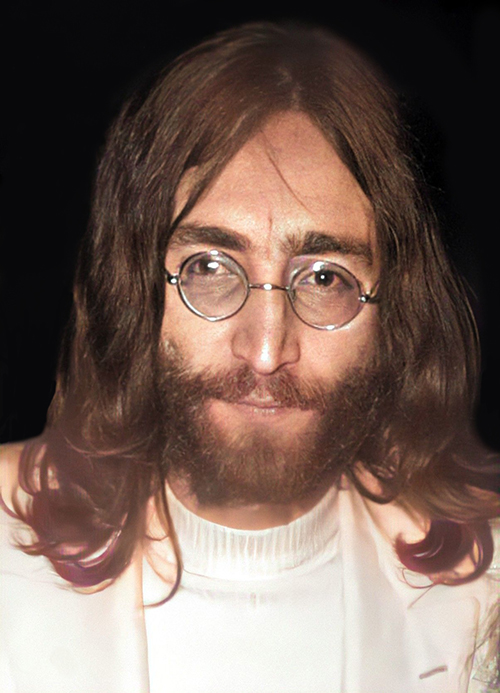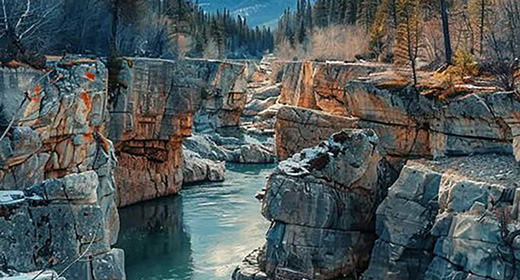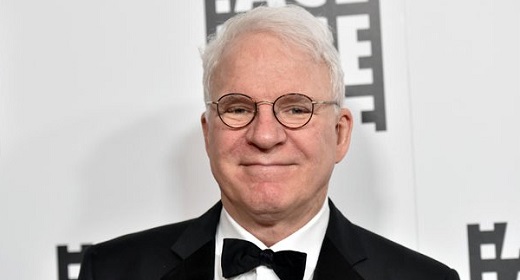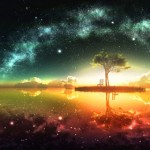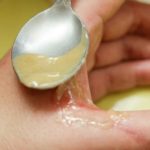Awaken: Firstly, thank you for spending this time with us. At the risk of unneeded flattery, your work not only laid the soundtrack for my own life, but paved the way for all pop and rock music that came afterward.
We are honored to share your personal thoughts on a variety of topics. Let’s start with your early days in a new rock ’n roll band… In the beginning, there was a lot of push back against the whole scene, wasn’t there?
Rock & Roll—
John Lennon: It was mainly parents and they were against rock n roll anyway, before the Beatles came along. I mean, people have been trying to stamp out rock ’n roll since it started.
Awaken: Why was that?
John: Because it came from black music and the words had a lot of double entendre… and the white kids are gonna go crazy with all this moving their bodies… and the music got to your body… and the Beatles just carried it a bit further, made it a little more white, even more than Elvis did because we were English, you know?
The Stones—
Awaken: It was an exciting time for music. The Stones arrived on the scene a few years later than you guys, and people often assume you were rivals, but in fact, you helped them get started, for example, with the song “I wanna Be Your Man.” Would you share the story?
John: The story on “I wanna Be Your Man” was that they (The Stones) needed a record. They’d put out “Come On,”by Chuck Berry, and needed a quick follow-up. We met Andrew Oldham, who used to work for Epstein… who had gone to the Stones and probably got them off Giorgio Gomelsky. He came to us and said, “Have you got a song for them?” And we said, “Sure,” because we didn’t really want it ourselves.
We went in, and I remember teaching it to them. We played it roughly, and they said, “Yeah, OK, that’s our style.” So, Paul and I just went off in the corner of the room and finished the song while they were all still there, talking. We came back and that’s how Mick and Keith got inspired to write: “Jesus, look at that… they just went in the corner and wrote it and came back!” Right in front of their eyes we did it.
We used to write in the early days, when we had more time, or seemed to, for other people. We thought we had some to spare.
Awaken: I understand the Stones’ amazement… in the recently released Get Back documentary, we all had a chance to see you in action! And you remained friends as you both grew as artists…
John: We hung around with the Stones in two separate periods. The first was initially, when they were still playing in the clubs, and the later period was when we were both riding high, and there was a discotheque scene in London. We were like kings of the jungle then, and we were very close to the Stones. I don’t know how close the others were… I spent a lot of time with Brian and Mick and I admired them
On Being Cynical—
Awaken: People came to know you through your interviews and your outspoken nature. You’re often described as sardonic, sarcastic and cynical. Do you see yourself that way?
John: I’m not a cynic. They’re getting my character out of some of the things I write or say. They can’t do that. I hate tags. I’m slightly cynical, but I’m not a cynic. One can be wry one day, and cynical the next, and ironic the next. I’m a cynic about most things that are taken for granted. I’m cynical about society, politics, newspapers, government. But I’m not cynical about life, love, goodness, death. That’s why I really don’t want to be labeled a cynic.
Awaken: What is the root of your cynicism toward society?
John: I think our society is run by insane people for insane objectives. And I think that’s what I sussed when I was 16… but I expressed it differently all through my life. It’s the same thing that I’m expressing all the time, but now I can put it into a sentence… that I think we’re being run by maniacs for maniacal ends.
If anybody can put on paper what our government and the American government… And the Russian, Chinese… are trying to do… and what they think they’re doing… I’d be very pleased. I think they’re all insane, but I’m liable to be put away as insane for expressing that. That’s what’s insane about it!
On Religion—
Awaken: I hate to have to go here, but for the sake of clarifying, once and for all, your infamous comment about the Beatles being “more popular than Jesus now.” What did you really mean?
John: If I had said “television is more popular than Jesus,” I might have got away with it. I said it in reference to England… that we meant more to kids than Jesus did, or religion did, at that time. I wasn’t knocking it or putting it down. I was just saying it. It was a fact… more for England than here. I’m not saying that we’re better or greater… or comparing us with Jesus Christ, the person, or God as a thing or whatever it is… I just said what I said and it was wrong. Or was taken wrong.
I never meant what people think… I was very close and intimate with this person who happens to be a reporter and I was using expressions on things that I’d just read… and I was saying it in the simplest way I know, which is the natural way that I talk… people that know me took it exactly as it was, ‘cause they know that’s how I talk
Awaken: What is your feeling about Jesus?
John: I believe Jesus was right, Buddha was right, and all of those people like that are right. They’re all saying the same thing, and I believe it. I believe what Jesus actually said… the basic things he laid down about love and goodness, and not what people say he said.
Awaken: Do you believe in God?
John: I’d always suspected that there was a God, even when I thought I was an atheist. Just in case, I believe in it, so I am full of compassion, but you can still dislike things. I just hate things less strenuously than I did. I haven’t got as big a chip about it because maybe I’ve escaped it a bit. I think all our society is run by insane people for insane objectives.
Your Family—
Awaken: You grew up with women. Tell me about that…
John: There were five women that were my family. Five strong, intelligent, beautiful women; five sisters. One happened to be my mother. My mother just couldn’t deal with life. She was the youngest and she couldn’t cope with me and I ended up living with her elder sister.
Those women were fantastic… they dominated the situation in my family
The men were invisible. I was always with the women. I always heard them talk about men and talk about life, and they always knew what was going on. The men never, ever knew. That was my first feminist education.
On Pain—
Awaken: Yet, I recall reading that you never really felt like you were wanted, and that this was very painful for you…
John: The worst pain is that of not being wanted, of realizing your parents do not need you in the way you need them. When I was a child, I experienced moments of not wanting to see the ugliness, not wanting to see not being wanted. This lack of love went into my eyes and into my mind. I was never really wanted.
Awaken: But as you quipped yourself, and I love the way you put it… that most of us were “Saturday night specials”…that “ninety percent of the people on this planet were born out of a bottle of whiskey on a Saturday night, with no intent to have children.” So, most of us were in fact, “accidents.” But I suppose, in your situation, this feeling of having been unwanted was more acute because you didn’t grow up with your parents at all…
John: My mother and father split when I was four and I lived with an auntie, Mimi. Mimi told me my parents had fallen out of love. I soon forgot my father. It was like he was dead. But I did see my mother now and again, and my feeling never died off for her. I often thought about her, though I’d never realized for a long time that she was living no more than five or 10 miles away.
Awaken: Perhaps this gave you your drive to succeed?
John: The only reason I am a star is because of my repression. Nothing would have driven me through all that if I was “normal.” Sometimes I was relieved to have no parents. Most of my friends’ relations bore little resemblance to humanity. Their heads were filled with petty-cash bourgeois fears. Mine was full of my own ideas! Life was spent entertaining myself, while secretly waiting to find someone to communicate with. Most people were dead. A few were half dead. It didn’t take much to amuse them.
Most people never get out of it. Some people cannot see that their parents are still torturing them, even when they are in their 40s and 50s. They still have that stranglehold over them, their thoughts and their minds. I never had that fear of, and adulation for, parents.
Awaken: Would you say that your unusual childhood was both a curse and a blessing?
John: With the fact that I wasn’t tied to parents, I would infiltrate the other boys’ minds. That was the gift I got, of not having parents. I cried a lot about not having them, but I also had the gift of awareness of not being something.
Awaken: Did the pain of your childhood make you tougher?
John: I’m not a tough guy. I’ve always had to have a façade of being rough to protect myself from other people’s neurosis. But really, I’m a very sensitive, weak guy.
Awaken: How did losing your mother, just as you had started to become very close with her as a teenager, shape what people may call your “edginess?”
John: It made me very, very bitter. That was another big trauma for me. I lost her twice. Once when I was moved in with my auntie. And once again at 17, when she actually, physically died. That was very traumatic for me. That was really a hard time for me… the underlying chip on my shoulder that I had, got really big then. Being a teenager and a rock n roller, and an art student with my mother being killed, just when I was reestablishing a relationship with her.
Awaken: How did you come to terms with the loss?
John: It helps to say, “My mummy’s dead,” rather than, “My mother died.” It doesn’t exorcise it — bang, gone — but it helps. First of all, you have to allow yourself to realize it. I never allowed myself to realize that my mother had gone. It’s the same if you don’t allow yourself to cry, or feel anything. Some things are too painful to feel, so you stop. We have the ability to block feelings and that’s what we do most of the time. These feelings are now coming out of me, feelings that have been there all my life. And they continue to come out. I don’t know if every time I pick up a guitar I’m going to sing about my mother. I presume it’ll come out some other way now.
Awaken: Do you buy into the idea that in general, it is our suffering that engenders good art?
John: All art is pain expressing itself. I think all life is… everything we do… but particularly artists – that’s why they’re always vilified. They’re always persecuted because they show pain, they can’t help it. They express it in art and the way they live, and people don’t like to see that reality that they’re suffering.
When you’re a child, you can only take so much pain. It literally blocks off part of your body. It’s like not wanting to know about going to the toilet or having a bath. If you don’t do it for a long time, it accumulates. And emotions are the same, you accumulate them over the years and they come out in other forms: violence or baldness or shortsightedness.
Awaken: Yet, for all of that, your childhood had its good moments, as well?
John: My childhood was not all suffering. We saw these articles in the American fan mags that said, “Those boys struggled up from the slums.” I was always well dressed, well fed, and well schooled and brought up to be a nice lower-middle class, English boy. That’s what made the Beatles different, the fact that George, Paul and John were grammar-school boys. Up until then all rock ‘n roll rollers, basically, had been black and poor: rural South, city slums. And the white had been truckers, like Elvis. Paul could’ve gone to university. He was always a good boy. He passed his exams. He could’ve become, I don’t know – Dr. McCartney.
Influences—
Awaken: Who are your earliest influences?
John: My influences are tremendous, from Lewis Carroll to Oscar Wilde to tough little kids that used to live near me, who ended up in prison. It’s that same problem I had when I was five: There is something wrong with me because I seem to see things other people don’t see.
Awaken: I can see the wacky world of Lewis Carroll come through in your work…
John: I was passionate about Alice in Wonderland and drew all the characters. I did poems in the style of “Jabberwocky.” I used to love Alice… After I’d read a book, I’d relive it all. That was one reason why I wanted to be the gang leader at school. I’d want them all to play games that I wanted to play, the ones I’d just been reading.
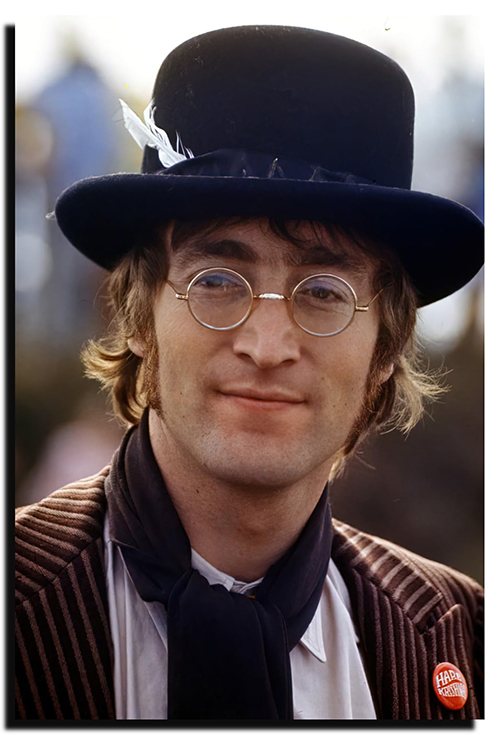
Drugs—
Awaken: You’ve been quite open about your drug use… But sometimes, what we do and how we feel about things are different! What is your feeling about drugs?
John: I think the basic thing that nobody asks is “Why do people take drugs of any sort, from alcohol to hard drugs?”And that question has to be resolved first before you think “well what can we do for the poor drug addict?”
Why do we have to have these accessories to normal living? I mean, is there something wrong with society that is making us so pressurized that we cannot live in it without guarding ourselves against it? I think if people were allowed to be a bit more free and express themselves, they wouldn’t have to inhibit themselves by taking drugs to not be hurt. People take drugs and drink so as to not feel what’s going on around them.
Awaken: We tend to create a war against everything, including drugs… But it doesn’t seem to work too well!
John: People are frightened of freedom. They think there will be excesses. Of course, there will be excess to a certain extent, but then it would settle down. If people are allowed to be completely free, it would level out, and people would be less inhibited and would not be frightened of each other, and they wouldn’t have to take drugs to prevent being hurt by each other.
Awaken: Yet, we’re very interested in how the conscious use of psychedelics can sometimes be a portal for awakening… would you share your first experience with LSD?
John: A dentist in London laid it on George, me, and our wives, without telling us, at a dinner party… A friend of George, and our dentist at the time, and he just put it in our coffee or something, and they didn’t know that it was different from pot or pills, and he gave it to us. And we went out to the discotheque and there were incredible things going on, and that’s how it happened.
We were going crackers, you know? When we went to the club, we thought it was on fire. We thought “what’s going on here?” We were cackling in the street. Shouting “let’s break a window”… We were just insane. We were just out of our heads. We got in the lift, and we thought there was a fire in the lift… It was just a little red light and we were all screaming, and it was hysterical. The lift stopped and the door opened and we were all “AHH!!!” And then we walked in, sat down… and the tables were elongated.
And then some singer came up to me and said “can I sit next to you?” And I said, “only if you don’t talk.” Cause I just couldn’t think. It seemed to go on all night… I can’t remember the details… It just seemed to go on all night.
And George somehow managed to drive us home in his Mini. We were going about 10 mph but it seemed like 1000 mph. But it was fantastic. I did a lot of drawing that night and then George’s house seemed to be like a big submarine.
And the second time we had it was in LA… that time we took it deliberately. We were on tour. One of those houses, like you know… Doris Day‘s house or something… And the three of us took it… Ringo, George, and I and a couple of the Byrds… we just took it, and then we saw a reporter and we suddenly think, “How do we act normal?”
We imagined that we were acting extraordinarily, which we weren’t. And Neil (Aspinall), who had never had it either, had taken it and he still had to play road manager, and he didn’t know what to do… And he kept saying “I know what it’s like to be dead.” And he kept saying it, and we said “for Christ’s sake, shut up! We don’t care.” And he kept going on about it. And that’s how I wrote “she said… I know what it’s like to be dead.”
Awaken: Did you have many more experiences with LSD after that?
John: I must’ve had 1000 trips. I used to just eat it all the time. I never took it in the studio. Once I took it accidentally… I thought I was taking uppers.
I can’t remember what album it was… I felt ill and I said “I feel so scared” on the mic. I thought I was going to crack and then I said “I’ve got to get some air.” And they all took me upstairs on the roof, and George Martin was looking at me funny and then it dawned on me I must’ve taken acid, and I said “I can’t go on.” They were all being very kind…“it’s all right,” and they carried on making the record.
Awaken: Were you all doing it in LA?
John: In LA, Paul felt pretty out of it because we were all slightly cruel… “we’re taking it and you’re not.” And we couldn’t eat our food. And there were all these people serving us in the house and we just sort of knocked it on the floor. I think George was pretty heavy on it. We were probably both the most cracked, you know? Paul’s a bit more stable than George and I. I don’t know about straight… “Stable.” I think LSD profoundly shocked him.
I dropped it for I don’t know how long, then I started taking it again just before I met Yoko. You see, I got a message on acid to destroy your ego, and I did, and I was reading that stupid book of Leary’s… and all that shit.
We got into the whole game that everybody went through, and I destroyed myself and I was slowly putting myself together after Maharishi, bit by bit, over a two year period and then… I destroyed my ego… And I didn’t believe I could do anything, you know?
Awaken: Would you say that acid woke you up, in a way?
John: I was different all my life. It’s not a case of “then he took acid and woke up,” or “then he had a marijuana joint and woke up.” Everything is as important as everything else.
Revolution—
Awaken: What was it that awakened your spirit of reform and drive to make the world a better place?
John: At school, I saw a lot wrong with society. I revolted, the same way as all my colleagues. Anyone who had anything didn’t fit in with the school curriculum, and all my reports from Quarry Bank (High School) were on the line: “He is clever, but doesn’t try.” I was a particularly offensive school boy. I am one of your typical working class heroes. Mine was the same sort of revolution as D.H. Lawrence’s — I didn’t believe in class and the whole fight was against class structure.
Awaken: Fighting the problem of class differences has always been part of your commitment as an activist, hasn’t it? I remember you telling a story about your own early experience with this…
John: The class thing is just as snobby as it ever was. People like us can break through a little — but only a little. Once, we went into this restaurant and nearly got thrown out for looking like we looked, until they saw who it was. “What do you want?” the headwaiter said. “We’ve come to bloody eat, that’s what we want,” we said. The owner spotted us and said, “Ah, a table sir, over here, sir.”
It just took me back to when I was 19, and I couldn’t get anywhere without being stared at or remarked about. It’s only since I’ve been a Beatle that people have said, “Oh, wonderful, come in, come in,” and I’ve forgotten a bit about what they’re really thinking. They see the shining star, but when there’s no glow about you, they only see the clothes and the haircut again.
Awaken: That revolutionary spirit was always in you…
John: I always was a rebel because of whatever sociological thing gave me a chip on the shoulder. But on the other hand, I want to be loved and accepted. That’s why I’m on stage, like a performing flea… because I would like to belong. Part of me would like to be accepted by all the facets of society and not be this loudmouth, lunatic, poet/musician. But I cannot be when I’m not. What the hell do you do? You want to belong, but you don’t because you cannot belong.
Awaken: What would you say to those who say to keep activism out of your music?
John: We’re not staying in any bag, like music or film or art… We are art, you are art… This is our art. The people at home are art. And it can’t interfere with peace. There’s no limits. Art isn’t something that has a corner. It isn’t in a box.
Awaken: You’ve worked very hard to spread your message of peace. And it hasn’t always been well received. Where have you had the most favorable reaction?
John: The response in Canada, just from the media… they give us a chance, you know? They don’t make fun of us for the sake of making fun of us. Criticism is valid, but in England, they just sort of refuse to hear anything we say, even if it’s one word, “Peace”… because it comes from an entertainer and his wife, or an avant-garde artist and her pop-star husband.
Awaken: If you had one wish, what would it be?
John: Peace on earth.
Awaken: What does peace on earth look like, for you?
John: If we had peace, that implies no violence, no starving children, no violent minds, no violent households, no violence. No frustrations, no fear. All its aspects… peace of mind, peace in the street, peace in your own home, peace throughout the whole world. Don’t hurt people.
Awaken: It seems we have a hard time learning from history. When I look at what is going on in Ukraine and the Middle East, we are not so far off from what was going on in Vietnam in the late 60s, which was the motivating force for your “bed in.” And so I ask you, in the spirit of keeping your message of peace alive, where do we start… again?
John: Your main energy should be going into the people on the street. It’s people who are going to change the government. It’s people’s minds that have got to be open… to know that “they are it.” And they can run without government. Just get people indoctrinated to think peace… it’s the only way. You’ve got to get through to the housewives and children. They’re gonna be the next generation. You’ve got to get through to them and convince them that peace is the way. Just have less words and more peace. No intellectualism… none of this approach about “howwe’re going to do it.” Don’t be snobs about it.
Split with Beatles—
Awaken: Would you say that your increasing need to affect the world politically was at the heart of your split with the Beatles?
John: Paul is a conservative. And always was, in a way. He’s more interested in putting out pop music, than anything that says anything. I just sort of said to them, “I think it’s sort of limiting what we’re doing together… I want to work individually, and not with the group anymore. I think the group image inhibits me.”
And just like that… It was just a case of… We got to a point where we just couldn’t work musically together because I got to a point where I couldn’t be bothered with, sort of… jog-along, happy songs about nothing in particular. I just could no longer feel it, you know?
Awaken: It sounds like you got bored with the whole thing?
John: It wasn’t going anywhere anymore. We’d stopped touring, and we’d just say, “time to make an album, go in the studio.” And the same four of us would be looking at each other and playing the same licks. I felt as though I couldn’t breathe if it went on any longer. And also, it was sort of dying. We were no longer enjoying it.
We really did enjoy it. There were times we hated it, but basically we did it because we liked it. We liked working together. But it got boring.
Awaken: Nonetheless, it couldn’t have been easy to leave?
John: I think we went through a little trauma of divorce because it was scary after being with people for 10 years. Suddenly to be out on your own…
After the demise of the Beatles so-called thing, I was a bit shook up, whether I knew it or not. And of course, it affected my work. I was very insecure. I’d be thinking… Maybe Paul wrote everything, or maybe it was all George, and maybe I didn’t do anything.
And then I’d look through the list of songs and think… Well I did write that… I helped with that… OK I’m alright, I’m alright.
Awaken: Thank you again, John, for spending this time with us.
This is one of Awaken’s Dream Interviews, conducted by Donna Quesada, and all answers are verbatim from John Lennon, by way of interviews and articles.

